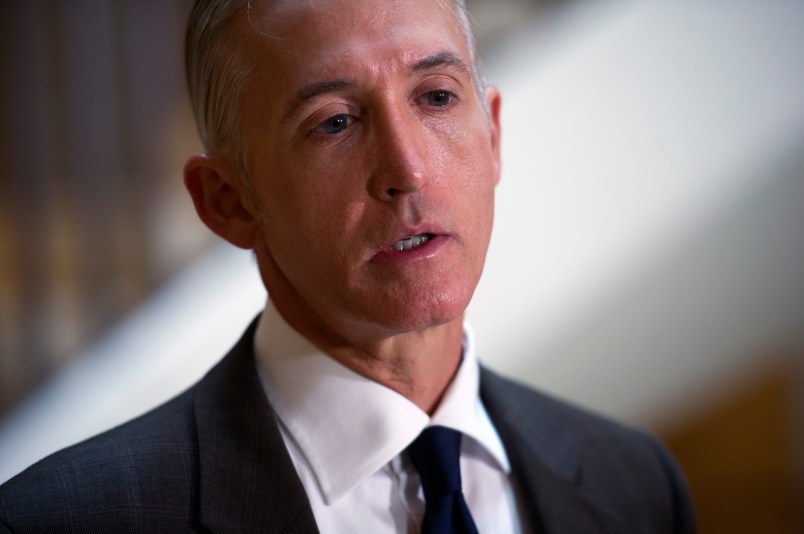Watching things unravel, it’s hard not to ask, where’d they find Trey Gowdy?
The latest, of course, is that he inadvertently revealed the name of a CIA asset in the course of falsely accusing Hillary Clinton of doing the same. Great work! This is after being reduced to demanding that fellow Republicans in the House stop saying his Committee is abjectly political and designed to attack Hillary Clinton. He’s even telling reporters “these have been among the worst weeks of my life.”
It is fair to say that Gowdy and his bogus investigation are under furious attack from the Clinton campaign and various Dem-leaning third party groups. But the whole spectacle brings us back to the journalism of permission.
What exactly has changed over the last few weeks about this investigation? I think the answer is pretty clearly: nothing. Sure Gowdy has started making mistakes under pressure, like this CIA asset goof. But that’s a result of the more aggressive coverage, not its cause. The simple reality is that it all goes back to Kevin McCarthy saying out loud what had long been transparently obvious: that the committee was designed to and was hammering Hillary Clinton’s poll numbers. It got a bit more steam when other Republicans starting saying the same thing. But McCarthy’s comment was the permission slip.
A secondary point worth mentioning is that all sorts of investigations have political motives. And that’s not necessarily a bad thing. Our system gives the opposition party an incentive to unearth wrongdoing or incompetence on the part of the party in power. If they find the goods, the fact that politics played into their motivation for finding it is largely beside the point. The key with the Benghazi investigation isn’t so much that it was political as that the investigation itself was bogus, endlessly rehashing the same old conspiracy theories and using their investigative power to pummel Clinton without any actual even conceivable wrongdoing they were looking for. Reporters watching knew this.
Again we have the same basic dynamic: journalists either felt that they needed such a statement to start looking at what this investigation was about or, in some cases, were just so ignorant that they didn’t know what was going on in the first place. From personal experience, I know there are reporters in both categories. But it’s those in the first that most interest me. Everybody knew what was up. But you couldn’t say it because doing so violated the ‘two, equally valid arguments on both sides’ rule. Like I said, McCarthy’s statement was the permission slip. And that’s really not the way it should work.






